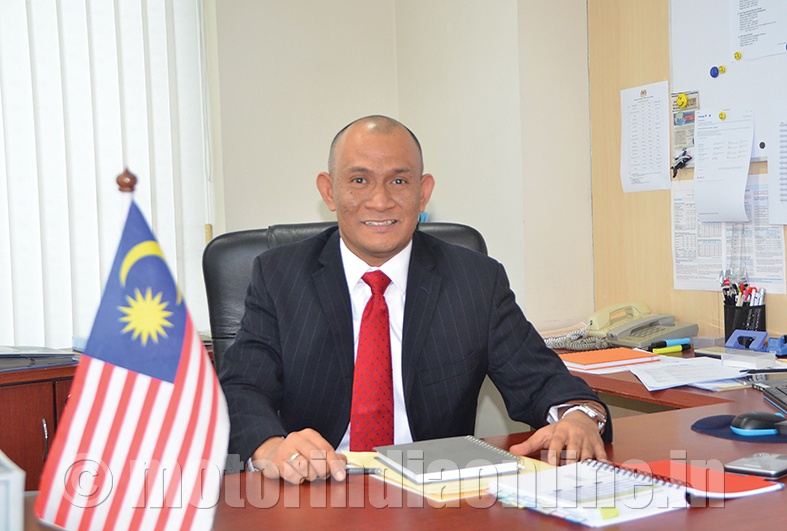Exclusive interview with Mr. Zuaziezie Zulkefli, Consul (Trade), Consulate General of Malaysia (Trade Section), Chennai

Malaysia is one of the fastest growing Asian countries offering world-class industrial infrastructure. Automotive is one of the major focus areas for the Malaysian Government. The country already has five local vehicle manufacturers, including Proton, and 11 vehicle assemblers such as Toyota, Honda, Volvo, Nissan and Scania. Apart from this, well-known Indian brands such as Tata Motors and Mahindra & Mahindra also market their products in Malaysia.
In order to attract major investments, the Malaysia National Automotive Policy (NAP) offers several new initiatives, including its special focus on energy-efficient vehicles. The policy contemplates Malaysia’s emergence as an energy-efficient vehicle hub by 2020 when 85 per cent of the vehicles produced will meet this basic requirement.
This was disclosed by Mr. Zuaziezie Zulkefli, who recently took over as Consul (Trade), Consulate General of Malaysia (Trade Section) in Chennai, in an exclusive interview with MOTORINDIA Managing Editor & Publisher R. Natarajan.
At the very outset, Mr. Zuaziezie Zulkefli said he likes India as much as Malaysia and is fond of south Indian food variety and its people for their general honesty and sincerity.
Referring to the prospects of Indo-Malaysian co-operation, he said India has become the eighth largest export destination for Malaysia and 13th in import destination and Malaysia has emerged the 22nd export destination for India. Meanwhile, exports from Malaysia to India in 2014 registered a substantial growth of 19.5 per cent valued at US$9.76billion with India becoming the 11th largest trading partner for Malaysia at the global level. Hence, there is a trade surplus for Malaysia, and the country can rise the bar in the years to come. Also, there is a feeling among Malaysian importers that Indian companies deliver high quality products including auto components, and there is a greater scope to widen the business activities.
He further said that the auto sector which contributes $10 billion to Malaysian GDP is growing faster, backed as it is by an attractive national automotive policy. The policy envisages an export target of two lakh cars worth about RM 10 billion as well as an additional employment of 150,000 of the current employment of about 550,000 to seven lakh people by 2020. Today, Malaysia has around 800 component manufacturers, and all of them have major ambitious plans to become global players.
Mr. Zuaziezie Zulkefli was happy to point out that Malaysia’s leading car maker Proton recently signed a Memorandum of Understanding (MoU) and license agreement with Suzuki of Japan based on the success story of Maruti-Suzuki in India. With the announcement of Prime Minister Narendra Modi’s visit to Malaysia this year, the two countries are expected to enter a new era of relationship, he added.